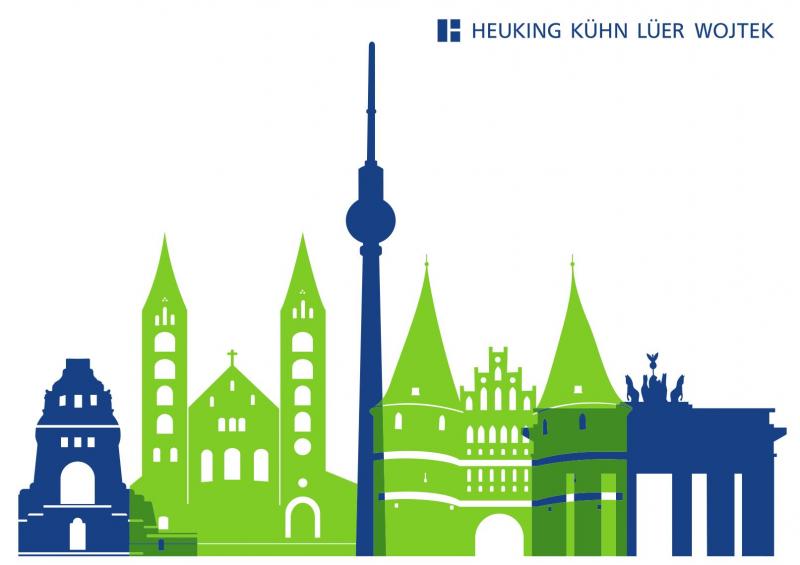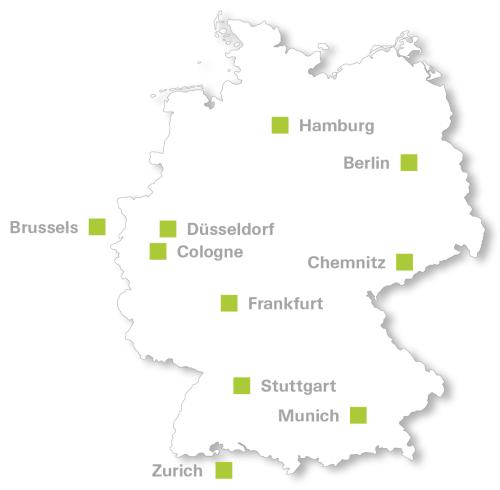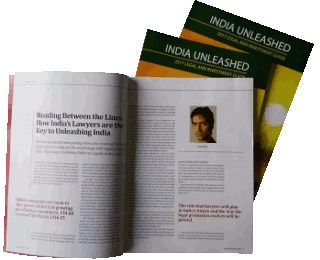
Heuking Kühn Lüer Wojtek's Dr André-M Szesny, LLM, Dr Susanne Stauder and Anna Coenen explain Germany's new transparency register.
The revised Anti Money Laundering Act (GwG) came into force on 26th June 2017. It entails significant new features for a range of companies. In particular, a new component of the money laundering regulations is the introduction of a transparency register. Companies and other associations must provide information about the beneficial owners behind them.
The purpose of the transparency register is to collect information about the ultimate beneficial owners of companies or other entities. It contains various information about those natural persons behind and who control sometimes complex commercial law structures. The register is intended to provide information regarding in whose interests transactions are ultimately entered into by companies. In order to “feed” the register and keep it up to date, numerous associations will be subject to information obligations. They must submit notifications regarding their ultimate beneficial owners to the transparency register by 1st October 2017 at the latest. For their part, the shareholders and ultimate beneficial owners are obliged to provide the associations with the relevant information.
Any violations of these obligations are potentially subject to considerable fines.
Addressees – Who is required to submit notifications to the transparency register?
The duty to register with the transparency register applies not only to those market players who are at particular risk in respect of money laundering, but to almost all forms of entities under German law, regardless of their legal form or size. In addition to partnerships (OHG, KG) and limited liability companies (AG, SE, GmbH), it includes foundations with legal capacity, associations, cooperatives and partnerships.
The obligation to register also affects trust administrators, trustees of foundations without legal capacity where the aims of the foundation are self-serving and trustees of similar structures insofar as the administrator or trustee is resident in or has its registered offices in Germany.
The only form which is not covered is partnerships constituted under civil law (GbR).
Ultimate beneficial owner – What information must be notified to the register?
The pivotal point in connection with the transparency register is the concept of the ultimate beneficial owner. Information on these must be notified to the register. The portal is being managed electronically. Notifications are made via the website www.transparenzregister.de. The association which is subject to notification obligations must first register here before it can file information on the ultimate beneficial owner in the register.
An ultimate beneficial owner can only ever be a natural person (cf. § 3 GwG).
In the case of associations (with the exception of foundations), a person is particularly deemed to be an ultimate beneficial owner if they hold, directly or indirectly, more than 25% of the capital of a company (shareholder), control more than 25% of the voting rights in a company (proxy holder) or exercise control over the company in a comparable way, for example through a controlling influence or specific agreements.
In the case of foundations with legal capacity and trust constructions or trust-like structures, those natural persons who act as trustors, trustees or protectors, all members of the Executive Board, all those who are named as beneficiaries and those natural persons who either directly or indirectly exercise a controlling influence over the management of the assets or profits are deemed ultimate beneficial owners.
If it is not possible to identify an ultimate beneficial owner – because none exists according to this definition, for example – then the legal representative or managing shareholder or partner must be recorded as ultimate beneficial owner. This information must then be reported for entry into the transparency register.
Information which must be provided – What has to be entered into the register?
The information which must be entered into the register is the forename and surname, date of birth, domicile and the type and extent of the beneficial owner’s commercial interest. In certain special cases, described in more detail in the Anti Money Laundering Act (§ 21 GwG), the nationality of the ultimate beneficial owner must also be notified.
The type and extent of the commercial interests are of particular importance. It must be clear from the information provided in this respect how the position as ultimate beneficial owner is derived. This can, for example, derive from the owner’s shares in the notifying company – e.g. through capital shares or voting rights – or as a result of exercising control in another manner, such as through pooling or block voting agreements which confer control.
Notification fiction – Are there exceptions to the notification obligations for the transparency register?
Insofar as the information required for the transparency register can already be obtained from existing public and electronically accessible German registers, the transparency obligations are deemed to have been met. So, for example, if the required information is already available in the commercial register or in the registers of partnerships, cooperatives or associations, a notification to the transparency register is not required.
By contrast, the register of shareholders is not a public register. With regard to the commercial register, it must be noted that lists of shareholders must be filed there, which, since the German Act to Modernise the Law on Private Limited Companies and Combat Abuses (MoMiG) came into force in 2008, must be stored electronically.
The notification obligations for the transparency register are further deemed to have been met if the association which is subject to notification obligations is a company whose shares are listed on an organised market as per § 2 para. 5 German Securities Trading Act (WpHG) or if they are subject to transparency requirements relating to voting shares under European Community law or equivalent international standards.
Insofar as the type and extent of the commercial interests cannot be identified from the aforementioned registers – for example, because control is based on block voting or pooling agreements which cannot be identified from the commercial register – this may result in an obligation to provide notifications to the transparency register in respect of all the information required under the GwG.
Separate notification of the transparency register is also always required if a notification in respect of the ultimate beneficial owner or information relating to the same subsequently changes and the amendments were entered in a different public register. In such cases, a separate notification must be sent to the transparency register from which it can be seen that the information on the ultimate beneficial owner can henceforward be obtained from another public register.
The wide range of possible scenarios and the various shareholding structures common in companies mean that entities must check carefully about their notification obligations and possible fictions, not merely whether they are subject to notification obligations, but also whether the documents filed with other registers are sufficient to meet the demands of the transparency register.
Foundations are required to provide a notification regarding their ultimate beneficial owner in every case, as this information has not been available in public registers to date in the meaning intended in the GwG.
Duty of information – How can an association tell who its ultimate beneficial owner is?
Associations which are subject to notification obligations must collect, store and keep up to date information regarding the ultimate beneficial owner and report it to the office responsible for the transparency register (Bundesanzeiger Verlag GmbH) immediately via www.transparenzregister.de. These compliance obligations apply to the management staff of the notifying association.
They are therefore required to take suitable organisational measures to ensure that the legal obligations are met. In order to ensure that the associations which are required to register actually receive information on their ultimate beneficial owners, the shareholders and, where appropriate, the ultimate beneficial owners are also subject to obligations. They must provide the notifying association with information about their shareholdings.
Inspection rights – Who has access to the register?
The supervisory and law enforcement authorities are entitled to look at the register, as are those who are subject to the Anti Money Laundering Act in order to undertake customer due diligence. In this respect, it must be noted that the transparency register does not provide any protection in respect of good faith; legal transactions should not rely on the information provided therein.
Other people and organisations such as specialised journalists or so-called NGOs are only entitled to inspect the register if they can demonstrate a justified interest in the individual case. For its part, the office managing the register can limit access for people with justified interests, provided that the ultimate beneficial owner affected by the inspection can show that inspection would impinge upon overriding interests worthy of protection on his/her part. When there would be such a justified interest in a specific case and whether the ultimate beneficial owner would be given the opportunity to appeal to the office before third parties were permitted to inspect the register has yet to be resolved. The earliest date for inspecting the register will be 27th December 2017.
Sanctions – What could happen in the event of violations?
The GwG contains a total of 64 offences punishable by fines. Among other things, these relate to the notification obligations in respect of the transparency register. Both wilful and negligent violations of these regulations will be punished. Violations can be punished with a fine of up to EUR 100,000.00. If this entails serious, repeated or systematic violations of the regulations, this can entail a fine of up to EUR 5 million or 10% of the total annual revenue. Furthermore, the GwG provides for disqualification from holding a managerial position. Administrative measures and verdicts regarding fines, together with the type and nature of the violation and the persons responsible for it, will be published on the website of the relevant supervisory authorities for a period of five years (so-called “naming and shaming”).
Firm profile
About us

Heuking Kühn Lüer Wojtek is one of the major commercial law firms in Germany rendering full multi-disciplinary legal services to German and international businesses. About 350 specialized lawyers, tax advisors and notaries practice within the firm’s eight offices in Germany (Berlin, Chemnitz, Cologne, Düsseldorf, Frankfurt, Hamburg, Munich and Stuttgart), a Belgium office in Brussels and a Switzerland office in Zurich.
As an independent national commercial law firm Heuking Kühn Lüer Wojtek is embedded in an international network of law firms without being tied to exclusivity. The firm’s lawyers are known for their pragmatic approaches, in-depth expertise in cross-border transactions and solutions tailored to the needs of their clients. The spectrum of our legal advice ranges from German and foreign mid-sized companies to international (including listed) large corporations in all matters of commercial law.
India Practice with customized advice
The increased need for advice on inbound and outbound transactions related to India is bundled in Heuking Kühn Lüer Wojtek’s India Practice. We advise our clients in collaboration with a small group of high-profile Indian commercial law firms. Since we are not bound by exclusivity agreements, we can offer our clients the best advice on an individual basis, custom-tailored to our clients’ needs. Our lawyers are familiar with the culture and circumstances in the country as a result of their many business trips to India. As we successfully support investment projects, we are continually exchanging professional and personal ideas with our Indian colleagues and hold joint client seminars. In addition, we are in close contact with the Indo-German Chamber of Commerce.
Entrepreneurial solutions for the commitment in Germany
Indian clients value our sound knowledge of the cultural and legal obstacles they face when doing business in Germany. We offer pragmatic business solutions for their interactions in Germany. Our advice ranges from legal and tax structuring of transactions and direct investments to individual questions on daily business, including matters of employment and residency law. As a full-service law firm, we are your contact for all legal matters. Upon request, we are also able to connect clients with tax advisors and auditors who can provide services in bookkeeping and payroll accounting.
Professional and individual support for your investment in India
We provide the utmost support to our German clients during their market launch in India, whether this involves establishing subsidiaries or entering into strategic partnerships and investments. In addition, we advise German clients on negotiating and concluding transactions with Indian business partners on an individual and professional basis.
The Indian trade magazine ‘India Business Law Journal’ recognized Heuking Kühn Lüer Wojtek as “Top Law Firm for India Work” in 2016 for the fourth consecutive year in the field of “Regional and Specialist Firms for India Related Business.” In addition the international handbook “Chambers Global 2016” has ranked the law firm in the field of Corporate/M&A - India: Expertise Based Abroad and members of the India Desk as “Leaders in their Field” in Corporate/M&A, Experts Based Abroad, India.
This article is brought to you by India Unleashed

India Unleashed is a print and online publication by Global Legal Media and Legally India, providing country-by-country insights and sector-specific analysis from leading law firms and writers around the world.
threads most popular
thread most upvoted
comment newest
first oldest
first
threads most popular
thread most upvoted
comment newest
first oldest
first